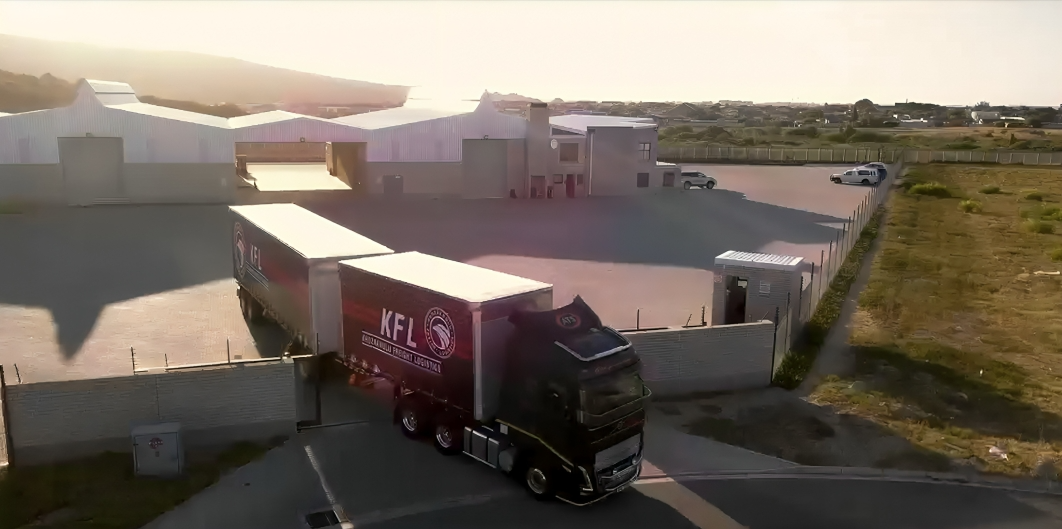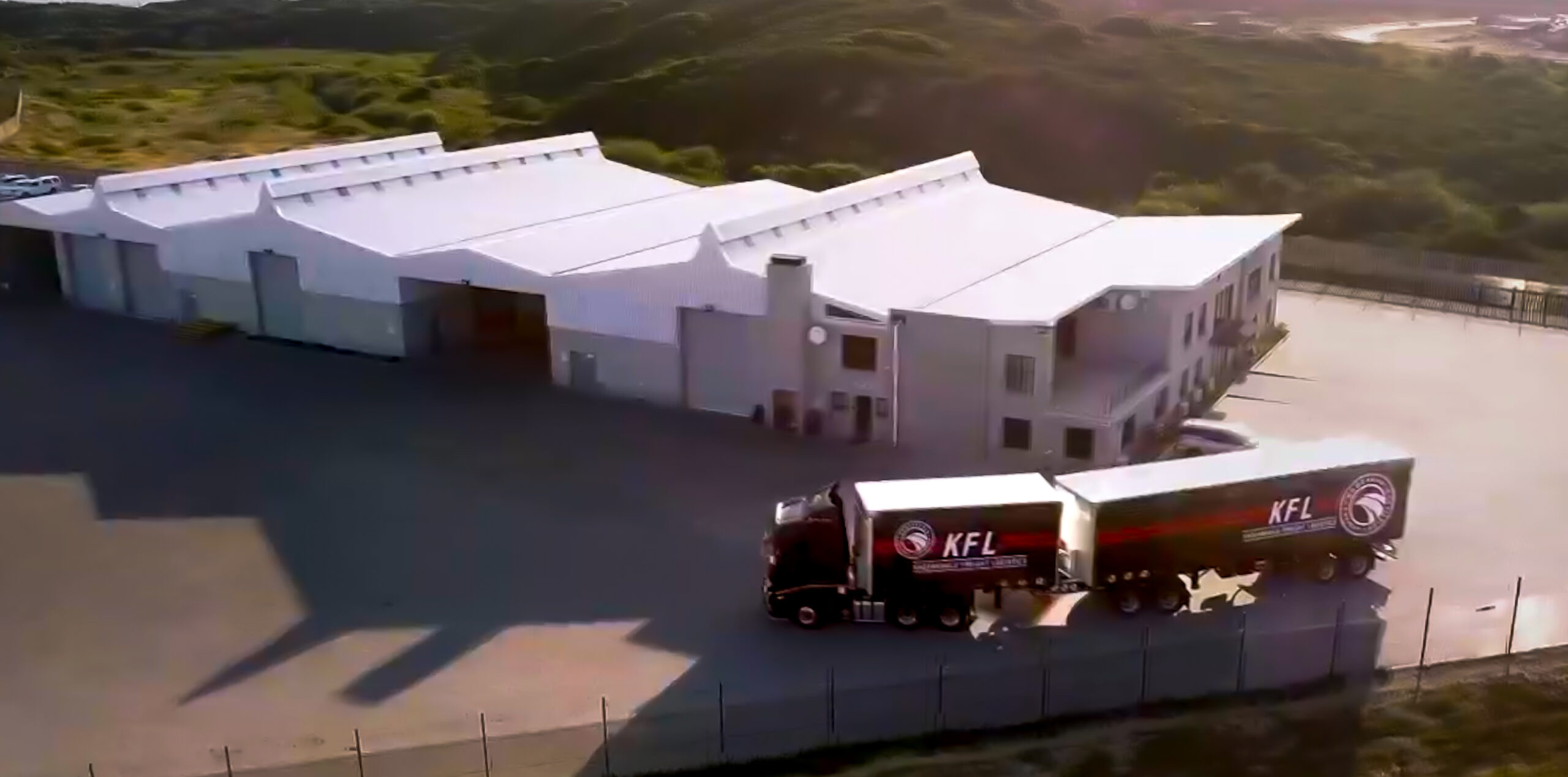
Secure Freight Handling Solutions are essential for protecting valuable cargo, maintaining delivery integrity, and ensuring business continuity across Southern Africa’s complex logistics environment. Because modern freight is exposed to risks such as theft, mishandling, loss, and environmental damage, businesses that prioritize security gain a critical edge. From cross-border shipments to national distribution, secure handling processes reduce operational disruption, lower insurance costs, and preserve client trust. Africa Transport Solutions (ATS) leads in this space by implementing comprehensive security protocols across each phase of transport, from warehousing and loading to final-mile delivery.
In regions where cargo theft and infrastructure inconsistencies are common, logistics must become proactive rather than reactive. Secure freight handling begins with process control—where every item is recorded, labeled, and tracked from source to destination. This process includes package verification, barcode scanning, cargo sealing, and physical inspections at critical checkpoints. Each movement is logged, verified, and matched against pre-recorded manifests. These records create accountability, enabling immediate investigation if any anomaly occurs.
Additionally, ATS invests in real-time monitoring systems that track location, vehicle speed, environmental conditions, and cargo status simultaneously. Drivers use encrypted communication tools to report status updates, route changes, or emergencies. Because constant visibility reduces the window for criminal interference, incidents of cargo loss decrease significantly. Clients also gain direct access to shipment dashboards, where live updates help them coordinate internal operations and avoid bottlenecks in receiving or processing.
Security in logistics is not limited to technology—it’s also about people. ATS trains its drivers, warehouse staff, and operations teams on best practices in secure handling. These include chain-of-custody procedures, safe loading protocols, and emergency response drills. Teams practice risk scenarios to ensure that if issues arise, personnel respond swiftly and in alignment with company protocols. Because every person in the logistics chain understands their role in protecting cargo, overall reliability improves.

Modern Secure Freight Handling Solutions depend on digital infrastructure that offers transparency, responsiveness, and actionable insights. The logistics landscape no longer relies on paper logs and manual check-ins. Instead, smart tracking and integrated systems manage every shipment touchpoint, enabling logistics providers to respond quickly and operate with accountability. ATS employs advanced GPS, RFID tagging, load sensors, and data encryption to manage security across its entire fleet and warehouse network.
GPS tracking forms the core of route visibility. Unlike basic systems, ATS’s trackers connect directly with a central operations center and offer route deviation alerts, estimated arrival times, and stop monitoring. The system flags abnormal behavior such as prolonged idling, unauthorized stops, or detours into restricted zones. These alerts allow operators to contact the driver, notify local authorities if needed, and adjust the logistics plan without delay.
RFID and barcode technologies assist in warehouse and container management. As cargo arrives at depots or distribution hubs, it is scanned and assigned a digital identity. This allows ATS to track where each parcel, pallet, or crate resides within the system. If something is misplaced or not accounted for during dispatch, alerts notify the team instantly. These checkpoints ensure that no cargo disappears unnoticed or gets loaded onto the wrong route.
Load sensors offer another layer of protection, especially for fragile or high-value items. Sensors measure shock, vibration, temperature, and humidity throughout transit. For temperature-sensitive cargo like pharmaceuticals or electronics, even small fluctuations can lead to spoilage or malfunction. These sensors enable transporters to maintain stable environments and respond to problems before product damage occurs.
Data security complements physical cargo protection. ATS ensures all client data, including shipment manifests, routing details, and inventory records, are encrypted using high-security protocols. Access to systems is restricted via multi-factor authentication and monitored user permissions. Since cyberthreats now target logistics systems, secure digital environments are as critical as sealed containers or guarded vehicles.

An often underestimated aspect of Secure Freight Handling Solutions is the physical preparation of goods for transport. Packaging errors, poor stacking, and insufficient restraint mechanisms lead to product damage, loss, and legal disputes. ATS applies industry-approved packaging protocols and vehicle loading systems to ensure that cargo reaches its destination intact and uncontaminated.
Packaging standards vary depending on cargo type. Fragile items require shock-resistant wrapping, foam cushioning, and corner guards. Liquid products use sealed containers with spill-control measures, while electronics may be vacuum-packed or housed in anti-static boxes. ATS assesses each shipment’s requirements before packaging and labels them with handling symbols and QR codes that provide loading instructions and product metadata.
Securing the cargo within the transport vehicle is equally critical. Improperly restrained loads shift during transit, causing breakage, equipment damage, or even vehicle instability. ATS employs adjustable locking rails, tie-down straps, load bars, and non-slip flooring to keep cargo fixed. For oversized loads or irregular dimensions, custom restraints are used to prevent movement under heavy braking or on uneven terrain.
Load balancing matters just as much as load securing. Vehicles are packed according to axle capacity and weight distribution standards. Uneven weight can cause tire wear, steering issues, or vehicle control loss. ATS uses load planning software to allocate cargo evenly across the truck’s bed and ensure compliance with South African road regulations.
Furthermore, before every departure, a dedicated team performs pre-trip load inspections. They check strap integrity, seal numbers, container conditions, and vehicle security components. This last checkpoint confirms that all handling protocols have been followed and that the freight is ready for safe, secure departure. These physical procedures, though manual, remain irreplaceable components of secure logistics.

Strict compliance with national and regional logistics regulations ensures that Secure Freight Handling Solutions not only protect goods, but also meet legal obligations. South Africa enforces comprehensive road freight regulations concerning cargo safety, driver hours, hazardous materials, and vehicle condition. Cross-border movement introduces customs controls, import/export rules, and product documentation. ATS ensures full regulatory compliance at every step.
Driver qualifications form the compliance foundation. ATS’s drivers carry valid professional driving permits (PrDP) and have clean records. Their certifications are renewed periodically, and all operators undergo compliance training for high-value or sensitive cargo. Knowledge of load limits, inspection procedures, and emergency protocols helps them avoid penalties and respond appropriately during checkpoints.
Vehicle compliance is also enforced rigorously. All fleet units receive regular roadworthiness inspections and comply with National Road Traffic Act standards. Vehicles that transport hazardous goods or bonded cargo include placards, safety kits, and spill containment tools as mandated by law. Trucks are registered and licensed, and any modifications are reported for legal review.
When handling international shipments, ATS manages customs declarations, SARS forms, duty calculations, and cargo inspections. All documentation complies with the SADC transit protocols and the Southern African Customs Union (SACU) standards. Shipments passing through Botswana, Namibia, Zimbabwe, or Mozambique include certified waybills, packing lists, and export documentation pre-approved by customs brokers.
Bonded goods require additional oversight. ATS maintains secure bonded warehouse access and uses sealed transit vehicles approved for deferred duty transport. Regular audits and customs reviews ensure legal conformity. Any deviation triggers internal reporting and response procedures. Maintaining a clean compliance record benefits clients by reducing clearance times, fines, or vehicle hold-ups.
Industry certifications provide clients with external assurance of standards. ATS holds accreditations for quality control, environmental safety, and logistics management systems. These certifications are renewed through third-party audits and ongoing performance monitoring. Clients can verify these credentials and gain confidence in their logistics partner’s reliability and professionalism.
While secure freight practices add upfront complexity, the long-term benefits for businesses are substantial. Secure Freight Handling Solutions reduce cargo loss, minimize delays, and strengthen customer trust. Businesses operating in competitive environments find that consistent delivery performance directly supports customer retention and brand reputation.
Reduced damage and theft mean fewer insurance claims, faster payouts, and lower premium adjustments. Over time, businesses see reduced risk-related costs and more predictable delivery timelines. Product recall rates drop, warranty disputes diminish, and customer complaints decrease.
Secure handling also simplifies international trade. Reliable logistics records help companies demonstrate due diligence, product custody, and compliance with global trade standards. This documentation supports business relationships with importers, government agencies, and audit bodies.
Furthermore, data from secure systems supports process improvement. Historical records reveal which routes cause the most delays, which facilities suffer from damage rates, or where packaging needs to be improved. These insights help businesses refine their supply chain strategy and set long-term KPIs for logistics operations.
Finally, operational trust increases across the value chain. When suppliers, distributors, and clients all recognize that cargo is handled professionally, collaboration becomes easier. Communication improves, delays decrease, and logistics managers spend less time on problem resolution. This reliability strengthens partnerships and supports sustainable growth for all stakeholders involved in freight movement.